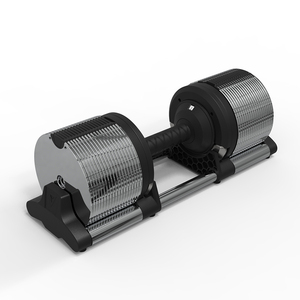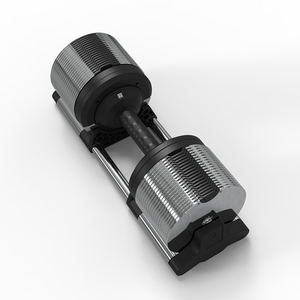Introduction to Body Free Weights
Body free weights are versatile fitness tools designed to enhance your strength training regimen. Often utilized by athletes and fitness enthusiasts alike, they are anchored in the fundamentals of weightlifting and resistance training. These weights come in various forms, including dumbbells, kettlebells, and medicine balls, allowing for an expansive range of exercises that can be tailored to meet individual fitness goals.
Types of Body Free Weights
Understanding the different types of body free weights is essential for maximizing workout effectiveness. Here are the most common varieties:
- Dumbbells: These are one of the most popular choices and come in fixed weights or adjustable forms, catering to all levels of strength training.
- Kettlebells: With their unique design that allows for dynamic movements, kettlebells are ideal for full-body workouts, emphasizing strength and endurance.
- Medicine Balls: These weighted balls can be used for power training and improving coordination, making them a staple in functional fitness.
- Weighted Bars: Providing stability in various exercises, weighted bars can enhance core strength and muscle definition.
Function and Feature of Body Free Weights
Body free weights serve various functions, making them a popular choice for many fitness enthusiasts:
- Full-Body Engagement: Free weights require stabilization, engaging multiple muscle groups simultaneously.
- Versatility: A wide array of exercises can be performed, including squats, presses, and curls, suitable for both beginners and advanced users.
- Compact Design: Unlike large gym machines, body free weights are space-efficient and can be used in small living areas.
- Scalability: Users can easily increase weight increments to challenge themselves as they gain strength over time.
Applications of Body Free Weights
The applications of body free weights are extensive and cater to different fitness goals:
- Weight Loss: Incorporating free weights into cardiovascular workouts can help elevate calorie burn and fat loss.
- Muscle Building: By adjusting weight resistance and training intensity, body free weights facilitate significant muscle hypertrophy.
- Rehabilitation: Therapists often utilize lighter free weights for rehabilitation and injury recovery, promoting strength without straining the body.
- Group Fitness Classes: Body free weights are commonly used in gym classes, providing dynamic group workouts that enhance social interaction and motivation.
Advantages of Using Body Free Weights
Choosing body free weights for your fitness training comes with numerous advantages:
- Improved Functional Fitness: They mimic natural movements, improving overall physical performance in daily activities.
- Enhanced Coordination: The requirement of balance and stability during free weight exercises strengthens the neuromuscular connection.
- Cost-Effective: Compared to elaborate gym equipment, body free weights are relatively inexpensive and widely available, making fitness accessible.
- Time Efficiency: A full body workout can be achieved in a short period, making it easier to fit exercise into a busy schedule.





















































